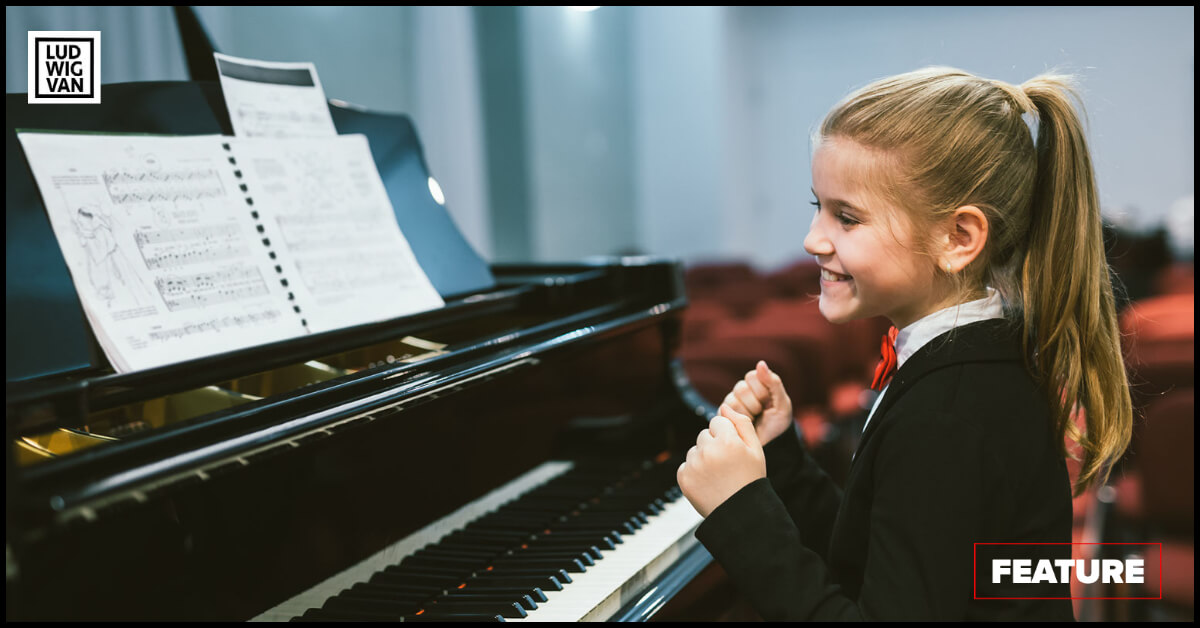
There are many ways that listening to and learning how to play classical music can benefit children. That includes developing memory and allowing for creative self-expression, along with helping to develop fine motor skills and even reducing stress.
We’ve compiled some thoughts on how to help open up the world of classical musical treasures to young ears.
Start early, and make music an inextricable part of life
Expose your baby to music in the crib, favouring gentle and soothing sounds. A music box is a charming way to do that, but a streaming service and specialized playlist will work just as well.
- Play music in the car, or with portable players on public transit. Listening to music together, and talking about it, makes it a shared family experience.
- Find videos and programming that’s on point. There are children’s shows such as Classical Baby or Baby Einstein that you can share and play for little ones.
- Even before you can think about instrumental music, children can sing. Make active singing a part of the family’s celebrations at holidays, but also on everyday occasions. Teach your children that music is part of ordinary living.
- Music lessons — for both of you, ideally. By age three to five, children can begin music lessons. Many instruments such as violins and classical guitars come in smaller than standard sizes for smaller hands.
Many of the great composers of Western classical repertoire wrote music for children to play that they can also appreciate in concert. The point is not to steer them towards a career as a concert musician — not necessarily — you’re gifting them with an excellent grounding in music that will serve them in any genre. Just ask Grammy winner Jon Batiste.
Bring them along to concerts — but when will they be ready?
- For the squirmy, noisier years of babyhood and toddlers, there are “relaxed” format concerts that accommodate neurodiverse audiences as well as families who may need to stroll around and move during a performance.
- Every child is different, but between the ages of six and 12, you should be able to expect younger audience members to not only sit still and quietly for the duration, but to appreciate the experience.
Choosing the music
Sergei Prokofiev’s 1936 classic Peter and the Wolf is a wonderful kid-friendly work, but it’s not the be-all and end-all of classical music for children. There are many ways to approach choosing the repertoire for your budding music lovers.
- Remember — children, and the younger the more so, don’t have any preconceptions about music and what it’s supposed to be. You don’t need to shy away from modern or atonal music, or stick with the 18th century or earlier. By about age three, kids should be ale to listen to and appreciate multiple styles of music.
- Can they dance to it? Adding movement adds another dimension of fun to experiencing the music, and aids in memory too. A good chunk of the standard classical repertoire began its existence as music to dance to, after all.
Find music that relates to your child’s interests.
- Mechanically inclined? There are pieces about trains like The Little Train of the Caipira by Villa-Lobos and Copenhagen Steam Railway Galop by Hans Christian Lumbye.
- For animal lovers, there are many pieces about animals, from Camille Saint-Saens’ Carnival of the Animals to Vaughan Williams’ The Wasps’ Overture and The Ballet of the Unhatched Chicks by Modest Mussorgsky.
- Tchaikovsky’s classic Nutcracker Suite has plenty to enjoy for kids’ who love fairy tales.
- Do they love superhero movies? Point out where Obadiah Stane (Jeff Bridges) plays from Antonio Salieri’s Piano Concerto in C major in Iron Man (2008), or how Franz Schubert’s String Quartet No. 13 in A minor, “Rosamunde” – I. Allegro ma non troppo is used in The Avengers. Those are only two of several examples.
Playlists are your friend. A playlist curated by Deutsche Grammophon designed specifically to appeal to young listeners, for example, includes 49 pieces, with both the usual suspects and some unexpected choices.
- You can find it here.
Just as books open up new worlds to young readers, classical music can open up new dimensions as it passes along benefits to young minds.
#LUDWIGVAN
Get the daily arts news straight to your inbox.